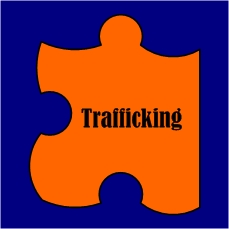The New Frontier for Newborns: International Surrogacy UPDATED

This latest article describes one of two high-profile cases involving international surrogacy in India. Though international adoption rules and regulations are tightening, this is one area that continues to grow due to lack of regulations and laws.
[The Time of India 2/2/11 by Sumitra Deb Roy]
A Norwegian woman became the parent to twins created by “an unrelated Scandinavian sperm donor and an Indian egg donor “and delivered by a surrogate in January 2010. Norwegian immigration, though, requires biological relation to the child for this situation. Now the children are “stateless”. Currently, this case is not showing signs of resolution.
This case follows on the heels of another international surrogacy debacle in India that may have to lead to an adoption in order for the children to immigrate.
[The Times of India 1/19/11 by TNN]
“If German couple Jan Balaz and Susan Lohle want to save their surrogate twins from becoming stateless citizens, then adoption is the only way out as the father could not succeed in proving paternity in Berlin, German authorities have informed India. “
Ukraine
Ukraine is becoming a hub for international surrogacy. Though the surrogates are allowed to receive compensation, the rural, poor women of course are paid less.
http://www.sofiaecho.com/2010/12/17/1012908_women-head-east-for-wombs-to-rent
[The Sofia Echo 12/17/10 by Doroteya Nicolova]
“Ukrainian law, by contrast, is the most surrogacy-friendly in Europe. Article 123.2 of Ukraine’s Family Code stipulates that women may receive financial compensation to carry someone else’s child, and the law places no limits on the amount that can be paid.”
“Valery Zukin, vice-president of the Ukrainian Association of Reproductive Medicine (UARM), says 150 to 200 paid-for surrogate motherhood cycles take place in the country each year.
About half of the women renting these Ukrainian women’s wombs are foreigners, usually from the US, Britain, France, Sweden and Italy, but also from Balkan countries”
“New Life in Kiev charges in American dollars. Its price is higher, at about $35 000 [26 000 euro], including an egg donation.
This is still only about one-third of the price charged in those US states, such as Florida, Nevada, New Hampshire, Virginia and California, that permit commercial surrogacy.
For renting out their wombs, the agencies in Ukraine pay surrogate mothers from $7000 US [5080 euro] in Kharkov to $12 000 [about 8700 euro] in Kiev”
US
US Citizens are also paying for international surrogates. “Assembling the Global Baby” discusses US citizens involved in International Surrogacy. Bulgarian women are recruited and give birth in Crete. A company called PlanetHospital.com LLC, in California, led by a former movie screenwriter, is involved in this process. Fees charged are from $32,000 to $68,000 up to $200,000 for a US surrogate. Since 2007 they have been involved in 459 births with 210 of them being born in 2009 (168 of them twins). Greek surrogacy is regulated by a 2005 law, but a loophole is exploited. Though surrogates cannot make a profit, they can recoup pregnancy related expenses, typically set at $50,000. This business is looking to expand services into Mexico and Ukraine.
[The Wall Street Journal 12/11/10 by Tamara Audi and Arlene Chang]
Update: Hague-denied agency Adoptions from the Heart of Pennsylvania has an active international surrogacy program in India.
“The agency charges a $2,800 fee to arrange for an infertility clinic in Hyderabad, India, to work with couples. The couples pay the clinic $25,000 for basic surrogacy services, which include an Indian egg donor, in vitro fertilization services, and medical care and housing for the surrogate. In most cases, parents do not have to travel overseas to initiate the surrogacy process because sperm used for in vitro fertilization can be frozen and sent to the clinic.”
“The Hui-Wees arranged for their surrogate on their own, dealing directly with a clinic in India. But Victor Hui-Wee said they encountered paperwork problems when they tried to leave the country with Connor.
“The U.S. consulate was vague and uncooperative with paperwork,” Victor Hui-Wee said. “We had to find our way through red tape.”
To help other couples avoid the same problems, the couple formed the company WeeCare Partners USA.
The fee-based agency helps would-be parents “navigate the international surrogacy process,” according to its website. ”
http://www.pittsburghlive.com/x/pittsburghtrib/news/westmoreland/s_721631.html
[Pittsburgh Tribune-Review 2/6/11 by Liz Zemba]
Update 2: India is debating new laws for surrogacy.”The Assisted Reproductive Technologies Regulation Bill 2010 introduces a set of legally binding rights and restrictions for all parties involved. Under the Bill, foreign commissioning individuals or couples must prove that surrogacy is permitted in their home country and that any resulting child will be permitted entry – and be recognised as the biological child of the commissioning individual or couple.
Foreign parents must also appoint a local guardian, who will be responsible for the surrogate and baby until the baby is collected. If the baby is not collected it remains the responsibility of the local guardian, who is permitted to hand over the child to an adoption agency. The Bill also makes it illegal for women to travel outside India to act as a surrogate.”
This may actually increase the number of surrogacy arrangements.
“Dr Allahbadia predicts the number births as a result of surrogacy to rise by approximately 10 to 15 percent and points to a World Bank report which estimates India’s commercial surrogacy industry will be worth
US$2.5 billion by 2020. At present, India is the only region in Asia that permits commercial surrogacy”
http://www.bionews.org.uk/page_88796.asp
[BioNews 2/7/11 by Nishat Hyder]
REFORM Puzzle Piece


Recent Comments